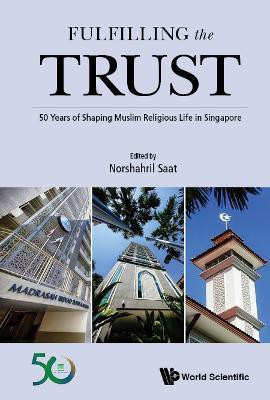Fulfilling The Trust: 50 Years Of Shaping Muslim Religious Life In Singapore(English, Hardcover, unknown)
Quick Overview
Product Price Comparison
Muslims constitute about half a million or 15 percent of Singapore's multiracial and multireligious population. In 1968, the Singapore Parliament passed the Administration of Muslim Law Act (AMLA), which led to the formation of Muis or the Majlis Ugama Islam Singapura (Islamic Religious Council of Singapore). The formation of Muis has brought about better administration of Muslim affairs in Singapore in meeting the religious needs of the Muslim community in areas like the issuance of fatwa (religious rulings), provision of halal food, management of haj (religious pilgrimage), collection and disbursement of zakat (charity tithe), running of madrasahs (religious schools) and having access to sound Islamic education. This was achieved with Muis having earned the trust and confidence of the community and ensuring the mutual facilitation of the community's, state's and society's needs.Fulfilling the Trust: 50 Years of Shaping Muslim Religious Life in Singapore is the first book that comprehensively studies the development of Muis' policies over the last 50 years since its founding in 1968. It offers an insight into the multi-faceted considerations and the overall context of the development of such policies, providing a wide-ranging and evaluative analyses of their evolution in the various work domains.The book argues that in order to better appreciate Muis' policies, one has to also understand the critical junctures, socio-historical context, diverse stakeholders and decision-makers' perspectives that led Muis to respond to issues and challenges in a certain way. This book is a valuable contribution to the community's cultural and experiential heritage, providing an indispensable resource for anyone or any institution wishing to pursue a constructive role for religious communities to equally contribute towards the betterment of a thriving plural society ensconced within a secular-based polity.


